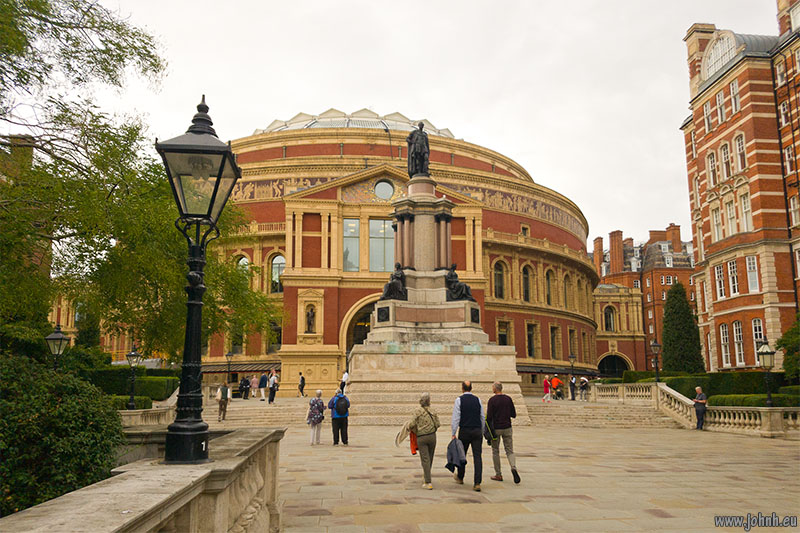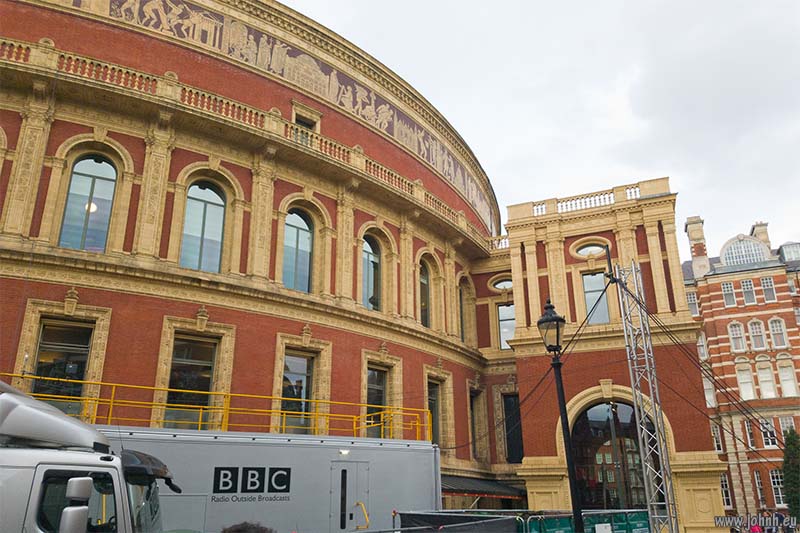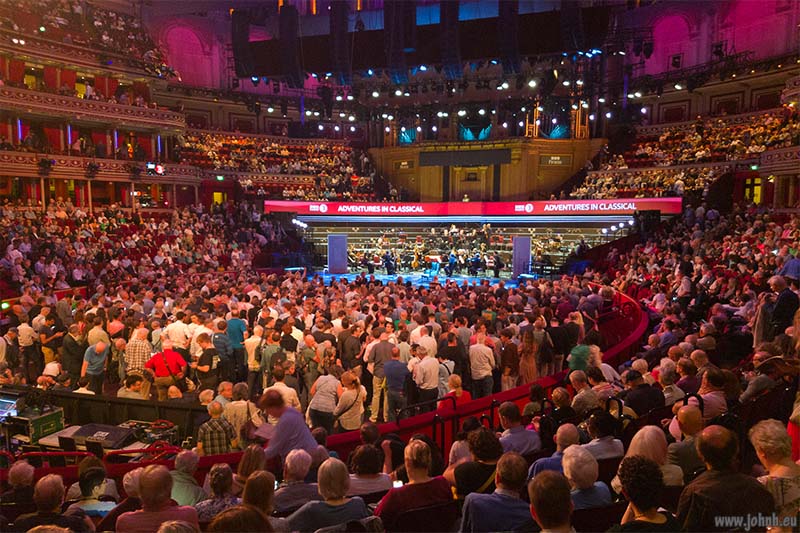A lively, modern performance of W.A. Mozart’s classic comic opera at the Proms. Figaro harks back to an earlier and apparently simpler time, of servants and Countesses; nonetheless there is a war somewhere. But seeing “The Marriage of Figaro” in a semi-staged version of Glyndebourne’s new production is an escape from the realities of our era with some of W.A. Mozart’s most sublime music.
Heroic conducting by Riccardo Minasi facing the Orchestra of the Age of Enlightenment players on stage. He turned to conduct the soloists, particularly in the duets, the magnificent sextet etc. He enticed great expression from the orchestra in a historically informed performance but there was a problem of balance. The singers were trapped between singing lovely but not too loud (for the radio audience) or loosing some tone and subtlety to project for the Albert Hall audience in front of them. I’m sorry to say the compromise wasn’t always to the good for where I was seated, especially with the orchestra being on stage, so more capable of drowning out the singers than in a pit underneath. It seemed the singers got a touch louder from Act 2 onwards, or there was a bit more sound reinforcement, especially in the recitatives.
The semi-staged production featured some wonderful period-style costumes, radiant even at the great distance of the seating of the Albert Hall. I enjoyed Tommaso Barea as Figaro in his aria in the style of a march at the end of Act 1 as he sends promiscuous Cherubino away to war as a soldier (Non più andrai) and Louise Alder as the Countess stilled the audience in Act 3 with her aria yearning for the simplicity of the innocent pleasures of the past (Dove sono). But for me, Adèle Charvet as Cherubino stole the show, singing the aria in Act 2 about love (Voi che sapete); and camped it up for the live audience both as an unbelievable soldier and when double cross-dressed as a maid. That was just one highlight in this new production which doesn’t hold back on the gender and sexuality themes in W.A. Mozart and Lorenzo da Ponte’s masterpiece, first performed in 1786.
Just the one interval, so more than 100 minutes each part; uncomfortable for the audience, also the performers and the limited toilet facilities at the Albert Hall. In the opera house there would have been two or three breaks.
I chatted during that interval with one guy who’d come out to his car parked in the disabled parking, he said his wife was staying for part 2 while he listened on the radio outside. Good plan, listening on the radio does give you the best seat in the house, though you don’t get the staging or the translation on surtitles, which leaves no excuse for not following the (ridiculous) plot.
I was tempted to forego my fairly comfortable seat to stand in the Promenaders area, where the sound and balance is so much better. Sometimes, when Promenading, we used to do the opposite for the second half: spy out a seat and not stand. I’m sure it’s discouraged but no-one I knew ever got harangued for it.
Great to get a sniff of a glorious Glyndebourne production, but in the huge space, sadly it was a pale representation despite valiant staging and wonderful singers.
Nicely nostalgic to walk home along Kensington High Street, as I have done many times over my years as a Promenader. Every time there’s more late night eating and shopping, also gyms and delivery bikes and the limos are getting more and outrageous. Figaro and the Countess of Almaviva seem, and are, from a wildly different era.
Le nozze di Figaro (The Marriage of Figaro) K492
Opera Buffa by W.A. Mozart and Lorenzo da Ponte
Figaro - Tommaso Barea
Susanna - Johanna Wallroth
Count: Huw Montague Rendall
Countess - Louise Alder
Bartolo - Alessandro Corbelli
Marcellina - Madeleine Shaw
Cherubino - Adèle Charvet
Don Basilio - Robert Forrest
Barbarina - Elisabeth Boudreault
Antonio - Alexander Vassiliev
Don Curzio - Vincent Ordonneau
Glyndebourne Festival Opera
Orchestra of the Age of Enlightenment
conductor - Riccardo Minasi




